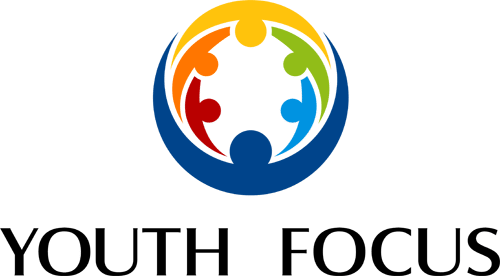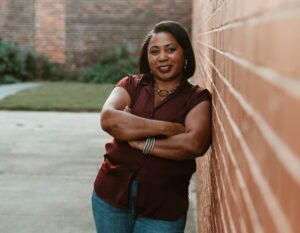
Many people may refer to child abuse as physical abuse that shows marks on a child; however, the signs aren’t always so clear. Child abuse can be physical, sexual, and emotional, or a child may be neglected, meaning that their caregivers don’t provide the child with basic needs such as food, shelter, or safety.
It’s important to know how to recognize the identifiers of the different types of child abuse, which is why I have listed identifiers within the four main types of child abuse.
Physical abuse: Physical abuse is when someone physically hurts a child’s body or puts a child in physical danger. It is important to remember that it doesn’t matter the extent that the child gets hurt (whether the child becomes seriously hurt and needs medical attention or if the child simply has a mark on them) because any harm to a child is child abuse. This can include situations when someone:
-
- Is hitting and beating a child
- Is hitting a child with an object, such as a belt or a stick
- Is kicking a child
- Is burning a child with hot water, a cigarette, or an iron
- Is holding a child underwater
- Is tying up a child
- Or is severely shaking a baby
Signs of physical abuse may include:
-
- Bruises, welts, or other injuries that can’t be explained or don’t match with the child’s story
- Burns, especially from cigarettes, that can’t be explained
- Injury marks that have a pattern, like from a hand, belt, or other objects
- Injuries that are at different stages of healing
- Medical or dental issues that go untreated
Kids who’ve been physically abused may also:
-
- Avoid any kind of touch or physical contact
- Be afraid to go home
- Seem to always be on high alert
- Wear clothing that doesn’t match the weather — such as long sleeves on hot days — to cover up bruises
- Withdraw from friends and activities
Sexual abuse: Sexual abuse is any kind of sexual activity with a child regardless if any physical contact has been made or not. This can include situations when someone:
-
- Forces a child to take part in pornographic pictures or videos
- Has any sexual contact with the child, from kissing in a sexual way to having sexual intercourse
- Makes phone calls or sends emails, texts, or other messages that are sexual in any way
- Shows the child someone else’s genitals, as with “flashing”
- Shows pornography
- Tells “dirty” jokes or stories
Signs of sexual abuse may include:
-
- Avoiding a certain person for no clear reason
- Bloody, torn, or stained underwear
- Bruising or bleeding around the genitals
- Pain or itching around the genitals that might cause problems walking or sitting
- Pregnancy or STD’s, especially under the age of 14
- Refusing to change clothes in front of others
- Running away from home
- Displays knowledge of sexual acts inappropriate for their age, or even seductive behavior
Emotional abuse: Emotional abuse is when someone displays a pattern of behaviors that harm a child’s emotional well-being and development. This can include situations when someone:
-
- Abuses others when the child is around, such as a parent, brother, sister, or pet
- Fails to show love and affection to a child
- Ignores the child and doesn’t give emotional support and guidance
- Shames, belittles, criticizes, or embarrasses
- Teases, threatens, bullies, or yells
Signs of emotional abuse may include:
-
- Excessively withdrawn, fearful, or anxious about doing something wrong
- Speech problems or delays in learning and emotional development
- Depression and low self-esteem
- Doing poorly in school
- Shows extremes in behavior (extremely compliant, demanding, passive, aggressive)
- Headaches and stomachaches with no clear cause
- The child doesn’t seem close to a parent or caregiver
- Showing little interest in friends and activities
- Acts either inappropriately adult (taking care of other children) or inappropriately infantile (thumb-sucking, throwing tantrums)
Neglect: Neglect is when a caregiver doesn’t give the child basic care and protection. This can include situations when a child is lacking:
-
- Clothing
- Food
- Heat in cold weather
- Housing with clean living conditions
- Medical care
- Or when a child is left alone for long periods or under dangerous conditions
Signs of neglect may include:
-
- Clothes are ill-fitting, filthy, or inappropriate for the weather
- Hygiene consistently bad (unbathed, mattered and unwashed hair, noticeable body odor)
- Being left alone or in the care of other young children
- Eating more than usual at a meal or saving food for later
- Doesn’t get medical, dental, or mental health care
- Frequently late or missing a lot of school
- Poor weight gain and growth
Preventing child abuse is everyone’s responsibility, not just a child or a parent. There may be many reasons that families may not want to seek help for child abuse. The stigma of abuse and fear of legal consequences, the abuser, and financial instability, among others, can prevent an individual from reporting abuse. Some of the reasons that people have reported are as follow(s):
A loved one or neighbor may notice changes in a child’s demeanor or behavior, which may be signs of abuse. A loved one or neighbor can seek help by utilizing the following resources:
-
- If there is an immediate danger, you should always call 911
- If you suspect a child is being harmed, you can contact your local child protective services (CPS)
- If you reside in North Carolina, you can visit https://www.ncdhhs.gov/ for information on reporting or call the National Child Abuse Hotline at 1 (800) 422-4453 (there are specific websites for all states in which you can google child abuse reporting information for your state, and the information will appear).
- If you are aware of sexual assault, you can contact the National Sexual Assault Hotline at 1-800-656-4673 (24/7 hotline).
If you suspect abuse, reporting it can protect the child and get help for the family. Each state identifies mandatory reporters (groups of people who are required to report suspicions of child abuse or neglect). However, any concerned person can and should report suspected child abuse.
When calling to report child abuse, you will be asked for specific information, which may include:
-
- The child’s name
- The suspected perpetrator’s name (if known)
- A description of what you have seen or heard
- The names of any other people having knowledge of the abuse
- Your name and phone number
For more information about where and how to file a report, call the National Child Abuse Hotline at 1 (800) 422-4453.
There are daily ways that individuals can be a connection to a family or child in preventing abuse. Simple acts like reaching out to have a conversation, offering to carpool, or cooking a fresh meal can help alleviate the stress a child or parent feels but also create a trusting relationship. Encourage others to be a connection through your actions and words, to lead by example. Additionally, share this post so that your family, friends, and other community members can have access to this information so that they can be a connection!
If you enjoyed this post, please like our page and follow us on our social media accounts for additional informative, fun, and helpful posts like this one! We appreciate all of you and what you’re doing to better the community in which we live in! Remember, #Beaconnection!!


